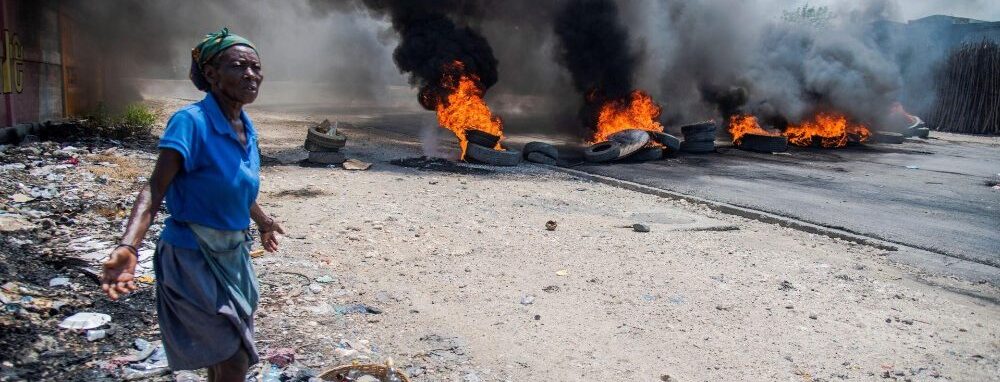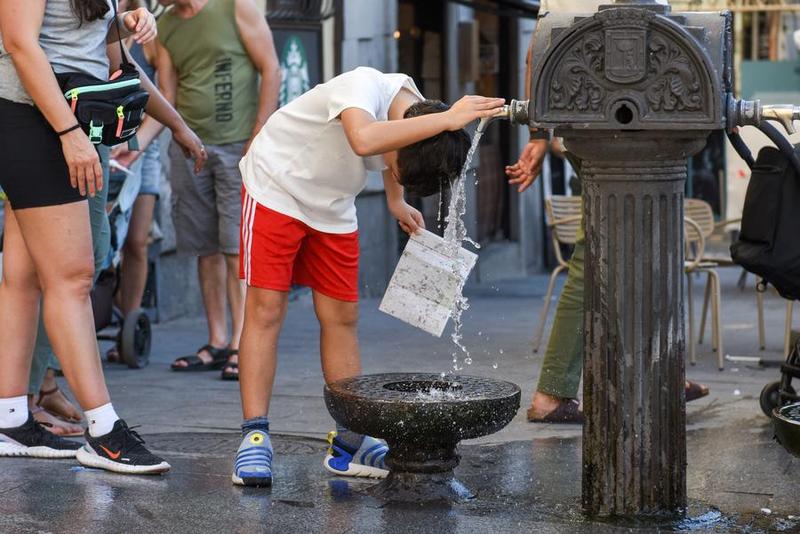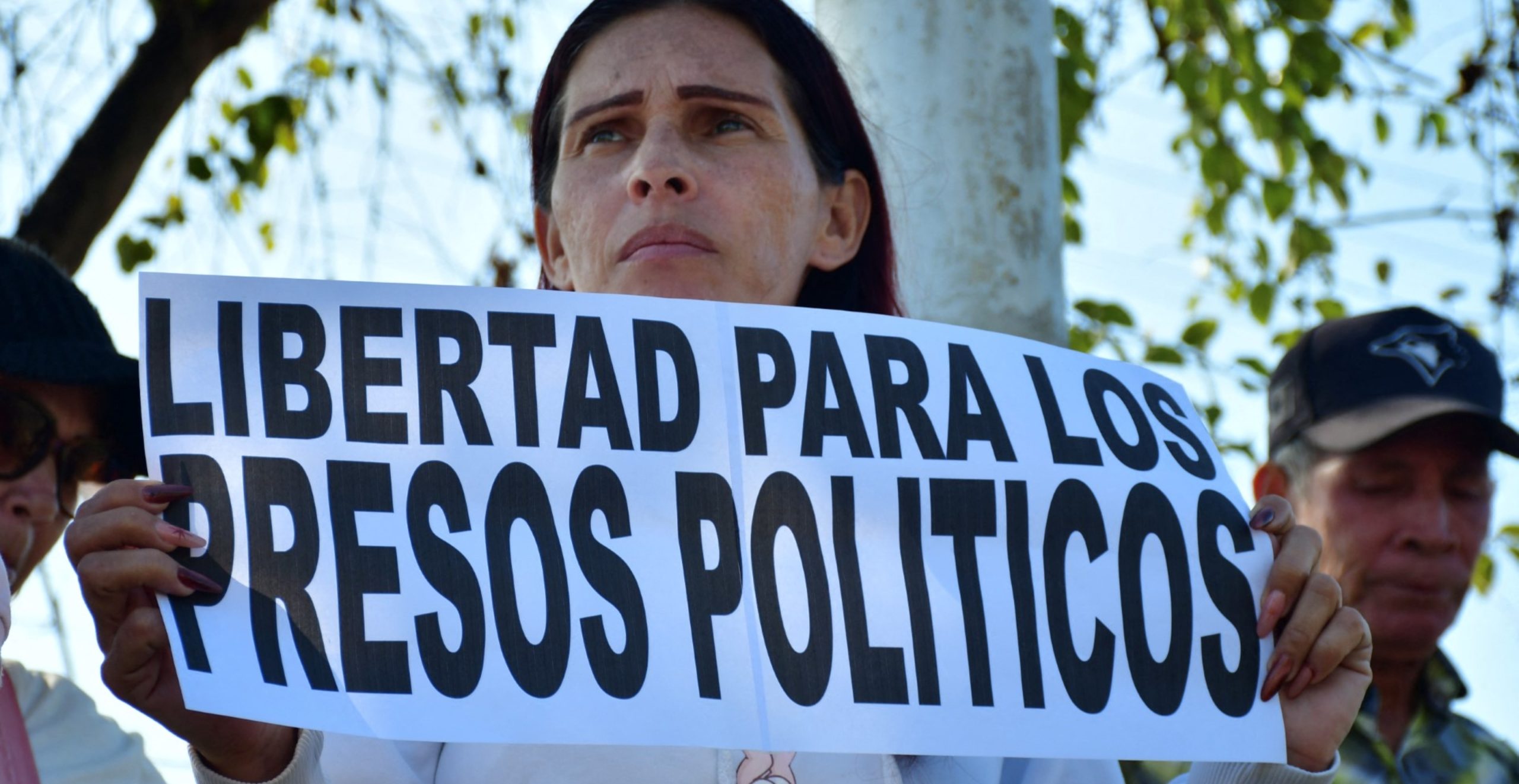International
Haiti hospitals and telecoms hit by fuel shortage as gangs tighten grip

AFP
Hospitals and telecommunication services in Haiti have warned that services could be halted due to fuel shortages caused by the growing grip of criminal gangs on the capital Port-au-Prince.
Lives are “likely to be lost” if fuel deliveries do not reach hospitals immediately, warned the acting UN humanitarian coordinator in the country, Pierre Honnorat, in a statement released Sunday.
An association of private hospitals in Haiti, which provides more than 70 percent of emergency and hospital care to the population, said it was issuing “a cry of alarm to the government.”
“With this fuel shortage, the continuation of vital services of 40 hospitals to entire sections of the population is threatened. The poorest people may pay dearly,” said the association on Sunday.
The same concern was expressed by international NGO Medecins sans Frontieres, which has been present in Haiti for 30 years.
“If the situation continues, the trauma/burns hospital in Tabarre in Port-au-Prince, which receives an average of 155 patients per month, may have to reduce its activities and restrict its admission criteria in the coming days,” MSF said.
The gangs that control a large part of Port-au-Prince have been blocking roads leading to the oil terminals, preventing regular supply of gas stations for several months.
The situation is already causing the shutdown of mobile telecommunications services, whose antennas are powered by generators.
“More than 300 sites out of 1,500 of Digicel are affected by the fuel shortage,” said Jean-Philippe Brun, director of operations of the telephone company, which controls 75 percent of the Haitian market.
Schools and businesses were closed Monday in the Haitian capital, and the streets, usually congested by traffic, were deserted following a call for a strike by the public transport unions to protest against growing insecurity.
Since the summer, armed gangs have increased the number of kidnappings across the country.
One of the country’s most powerful gangs is demanding $17 million in ransom to free a group of missionaries and their families — 16 US citizens and one Canadian — who were kidnapped on October 16 east of Port-au-Prince.
International
Spain’s irregular migrant population rises to 840,000, study finds

The number of migrants living in Spain without legal residency status continues to rise and has reached 840,000 people, with 91% originating from the Americas, particularly Colombia, Peru and Honduras, according to a report by the Spanish think tank Funcas (Foundation of the Savings Banks).
An estimated 17.2% of the non-EU foreign population living in Spain is in an irregular administrative situation. The estimate is based on the gap between the number of foreign residents effectively living in Spain, according to the National Statistics Institute (INE), and those who hold a residence permit, benefit from international protection, or are in the process of obtaining it.
The data, as of January 1, 2025, point to a notable and sustained increase in irregular migration since 2017, when the estimated figure stood at around 107,000 people, representing 4.2% of the non-EU population residing in Spain.
By origin, migrants from the American continent stand out, totaling around 760,000 people, or 91% of all irregular migrants. Colombians account for nearly 290,000, followed by Peruvians with almost 110,000, and Hondurans with about 90,000. Migrants from Africa (50,000), Asia (15,000) and Europe (14,000) trail far behind.
The figures predate Spain’s latest immigration regulation reform, which came into force in May 2025 and introduces measures to ease access to legal status through residency ties. According to Funcas, the reform would, in principle, tend to reduce the number of migrants in an irregular situation.
International
Historic snowstorm paralyzes Toronto after 60 centimeters of snow

Toronto, Canada’s largest city and the fourth most populous in North America, was largely paralyzed on Monday after a historic snowstorm dumped up to 60 centimeters of snow and sent temperatures plunging to -15 degrees Celsius, authorities said.
Late Sunday, as the scale of the snowfall became clear, city officials declared a climate emergency, triggering extraordinary measures including parking bans on several major streets to facilitate snow removal operations.
Toronto’s public transit authority reported that while some buses remain immobilized, subway and streetcar services are operating with relative normality, though localized disruptions may occur.
A similar situation is affecting the city’s commuter rail network, which remains operational but is experiencing significant delays on its main routes due to the severe weather conditions.
International
Venezuela frees at least 80 political prisoners, NGO says

At least 80 political prisoners were released on Sunday across Venezuela, human rights group Foro Penal reported, as the broader process of detainee releases continues at a slow pace under the interim government.
Foro Penal’s director, Alfredo Romero, wrote on social media platform X that verified releases took place nationwide and that the figure could rise as more confirmations are completed.
Attorney Gonzalo Himiob, also from Foro Penal, said the excarcelations occurred during the early hours of the day and emphasized that the number is not yet final pending further verification.
The releases are part of a series of steps announced by Venezuela’s interim leader, Delcy Rodríguez, who took power after the capture of former President Nicolás Maduro in a U.S. military operation on Jan. 3, 2026. Rodríguez has pledged a significant number of liberations but has been criticized by opposition groups and rights organizations for the slow and nontransparent nature of the process.
So far, the Venezuelan government reports that 626 detainees have been freed since December, though independent counts by human rights groups suggest the number of actual political prisoner releases is lower and that many remain behind bars.
Families of those still detained have maintained vigils outside prisons, hopeful for further releases even as broader concerns about political imprisonment and due process persist.
-

 Central America4 days ago
Central America4 days agoMazatenango Carnival cancelled amid State of Siege in Guatemala
-

 International4 days ago
International4 days agoTrump to invite Venezuela’s interim president Delcy Rodríguez to Washington
-

 International4 days ago
International4 days agoMarkets rise as Trump halts Europe tariffs and floats Greenland agreement framework
-

 International4 days ago
International4 days agoVenezuela’s interim president predicts 37% increase in revenues for 2026
-

 Internacionales3 days ago
Internacionales3 days agoMajor winter storm threatens “catastrophic” ice and snow across much of the U.S.
-

 International4 days ago
International4 days agoFour minors killed in deadly clash between FARC dissidents in Colombia’s Amazon
-

 International4 days ago
International4 days agoJapan reopens Kashiwazaki-Kariwa Plant despite public concerns
-

 International2 days ago
International2 days agoTrump-Era Defense Plan Prioritizes Border Security and Scales Back Global Commitments
-

 Central America3 days ago
Central America3 days agoGuatemala’s president rules out negotiations with inmates after prison riots
-

 International3 days ago
International3 days agoGuatemala considers sending high-risk gang members to military prisons
-

 International2 days ago
International2 days agoBogotá and Quito Seek Dialogue After Tariffs and Power Cut Escalate Tensions
-

 International1 day ago
International1 day agoDelcy Rodríguez seeks political agreements after Maduro’s ouster
-

 International3 days ago
International3 days agoRights group says over 5,000 killed in Iran protests, mostly civilians
-

 International1 day ago
International1 day agoFederal immigration agents kill man in Minneapolis, sparking protests and outrage
-

 International6 hours ago
International6 hours agoVenezuela frees at least 80 political prisoners, NGO says
-

 International5 hours ago
International5 hours agoSpain’s irregular migrant population rises to 840,000, study finds
-

 International5 hours ago
International5 hours agoHistoric snowstorm paralyzes Toronto after 60 centimeters of snow
-

 Central America6 hours ago
Central America6 hours agoGuatemala seizes over a ton of cocaine hidden in flour at Pacific port
-

 International6 hours ago
International6 hours agoEU launches new probe into X over AI-generated fake nude images
-

 International6 hours ago
International6 hours agoRights group says nearly 6,000 killed in Iran protest crackdown
-

 International6 hours ago
International6 hours agoFrance debates ban on social media for children under 15
-

 International6 hours ago
International6 hours agoSevere winter storm grips U.S., leaves multiple dead as extreme cold persists


























